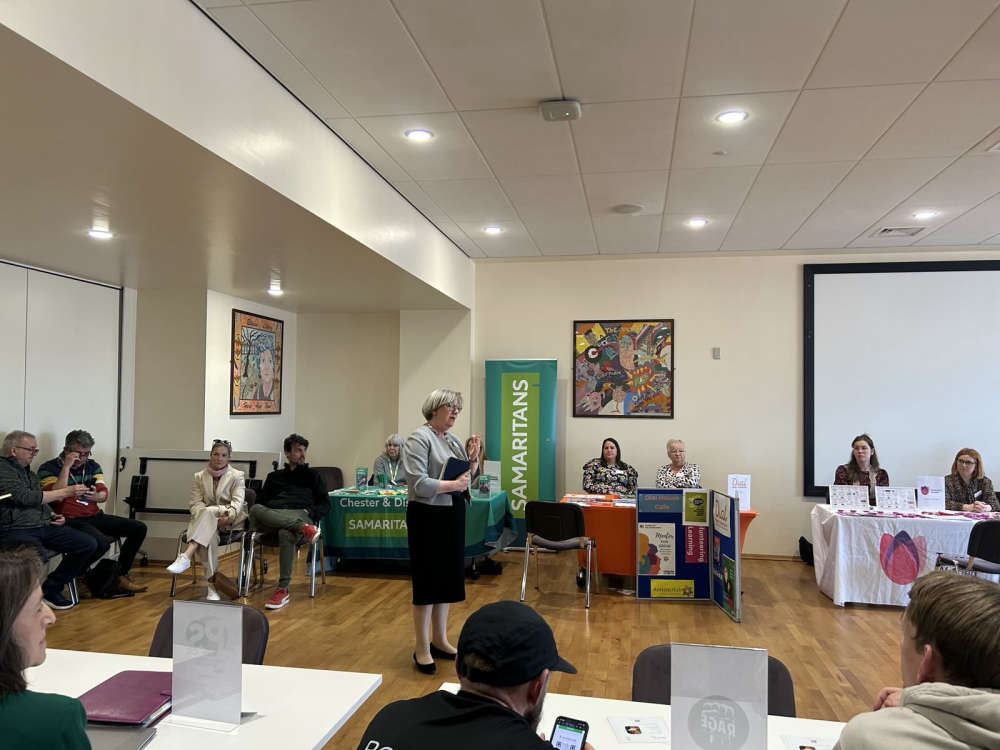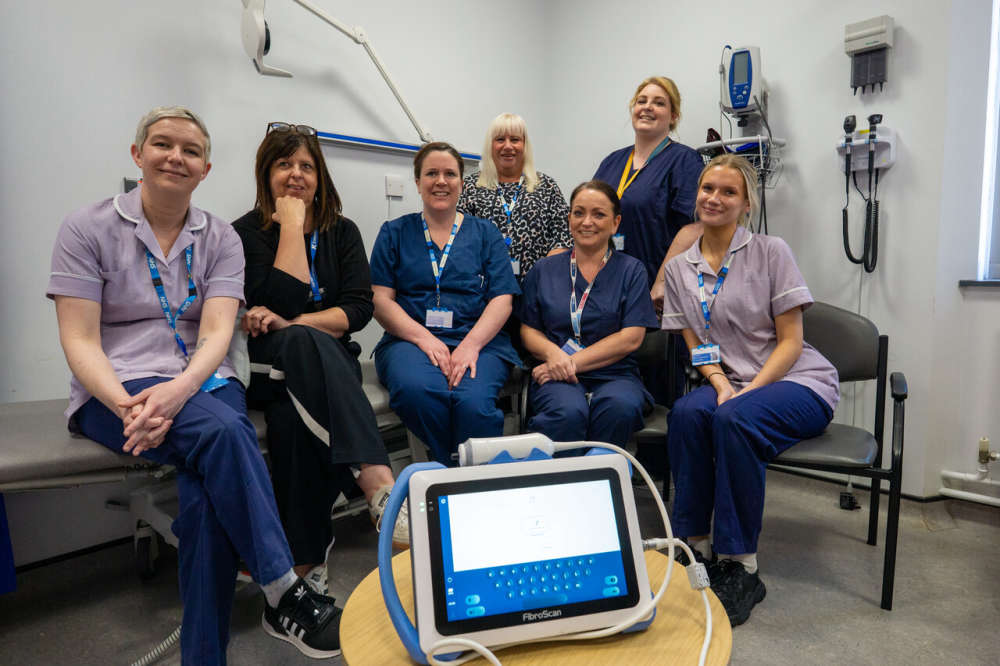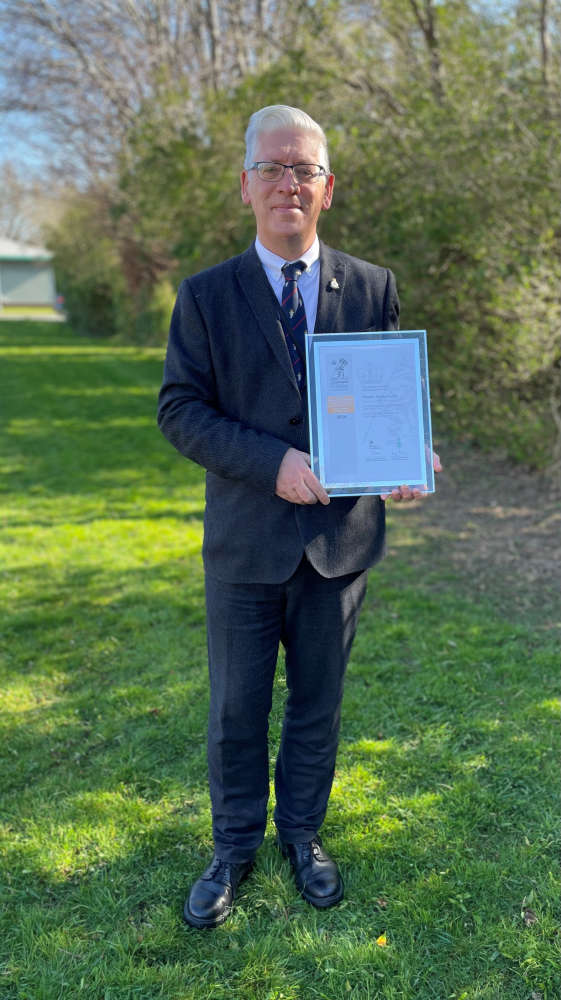
An estimated 1 in every 20 people diagnosed with COVID-19 experience the often ‘debilitating’ effects of long-term symptoms experienced after contracting COVID-19 – commonly known as ‘Long COVID’.
Someone is said to have Long COVID (or Post-COVID Syndrome), when symptoms continue for more than 12 weeks after a COVID-19 infection and cannot be explained by an alternative diagnosis.
Sufferers commonly experience generalised pain, fatigue, persisting high temperature and mental health problems such as post-traumatic stress, anxiety or depression - but many other symptoms have also been reported.
Mark Griffiths, 47, from Liverpool first contracted COVID-19 in March but soon realised something wasn’t right: “Initially I just thought I had a cold, then maybe flu but as my symptoms got worse, I had a test and found out I had COVID-19.
“I didn’t develop a cough until around 6 weeks later – and at this point I knew something was wrong.
“I then developed a whole range of symptoms such as fatigue, constant headaches, concentration and short-term memory problems, joint and muscle pain and breathing difficulties.
“As time went on, I became very frustrated. I was wondering, how long I would feel like this? How long will it take until I can live normally again and go back to work?
“After a while, I started to improve slowly - week by week – before returning to work full-time in September. However, my heart still races, and I still live with ongoing fatigue and headaches.
“People need to be aware that COVID-19 poses a greater risk to your health than you may think. I was a fit and strong individual and now I have symptoms I may have to live with for a long time to come. I certainly never thought I would become as ill as I did.
“Simply being cautious and following the advice can save people going through what I went through and potentially save lives.”
Dr Andrew Furber, Regional Director for Public Health England and NHS Public Health in the North West, said: “Long COVID can cause debilitating illness and a range of symptoms which may affect people’s ability to work, go to school, or even exercise.
“People often assume that if you’re young, fit and healthy COVID-19 will be a short-lived, minor illness for a couple of weeks and then you’ll be back to normal. This isn’t always the case and may develop into something more long-term and severely impact your quality of life.
“That’s why it’s still so important to follow COVID-19 advice closely. It’s not worth the risk.”
To help COVID-19 sufferers with their recovery, NHS England launched the ‘Your COVID Recovery’ website back in July.
Dr Furber added: ““We advise anyone suffering with the long-term effects of this disease to contact NHS 111 online or by phone in the first instance.
“The ‘Your COVID Recovery’ website is also a useful source of information, advice and support as you recover from COVID-19 – whether you’re experiencing physical or mental symptoms.”


 Housing and Support Fayre Helps Chester North & Neston Residents Access Vital Services
Housing and Support Fayre Helps Chester North & Neston Residents Access Vital Services
 Successful local hospital liver cancer screening service continues to expand
Successful local hospital liver cancer screening service continues to expand
 POPULAR CHESTER BAR CELEBRATES 25th ANNIVERSARY WITH SPECIAL LEGO MODEL
POPULAR CHESTER BAR CELEBRATES 25th ANNIVERSARY WITH SPECIAL LEGO MODEL
 Cheshire Digital Agency Fly High Media Shortlisted for European Search Award
Cheshire Digital Agency Fly High Media Shortlisted for European Search Award
 Blues Match Report: Hereford 2 - 2 Chester FC
Blues Match Report: Hereford 2 - 2 Chester FC
 Blues Match Preview: Hereford v Chester FC
Blues Match Preview: Hereford v Chester FC
 Ten arrested for drugs offences following warrants in Chester
Ten arrested for drugs offences following warrants in Chester
 Ten arrested for drugs offences following warrants in Chester
Ten arrested for drugs offences following warrants in Chester
 Suspended prison sentence and indefinite ban for Cheshire man who abused his dog
Suspended prison sentence and indefinite ban for Cheshire man who abused his dog
 Recovered Stolen Items
Recovered Stolen Items
 Man charged in relation to courier fraud
Man charged in relation to courier fraud
 Police to target criminal use of Cheshire’s roads
Police to target criminal use of Cheshire’s roads
 Council awarded Gold Armed Forces Award
Council awarded Gold Armed Forces Award
 Appeal for footage and witnesses following collision in Delamere
Appeal for footage and witnesses following collision in Delamere
 Appeal for information following serious collision in Chester
Appeal for information following serious collision in Chester
 Your chance to get involved in police scrutiny meetings
Your chance to get involved in police scrutiny meetings
 New Events at Jodrell Bank
New Events at Jodrell Bank
 Inspiring Futures at The Queen’s School
Inspiring Futures at The Queen’s School
 Bowmere Hospital celebrates 20 years of mental health care
Bowmere Hospital celebrates 20 years of mental health care